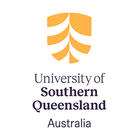Bachelor of Engineering (Honours) (Power Engineering)
Bachelor of Engineering (Honours) (Power Engineering)
Overview Be a part of the future of power engineering and gain the experience to work in major corporations with UniSQ’s Bachelor of Engineering (Honours) (Power Engineering). Study while you work, either online or on-campus, and have the flexibility to adapt your study to your life. Apply your knowledge through…
Categories
COURSE DESCRIPTION
Overview
Be a part of the future of power engineering and gain the experience to work in major corporations with UniSQ’s Bachelor of Engineering (Honours) (Power Engineering).
Study while you work, either online or on-campus, and have the flexibility to adapt your study to your life.
Apply your knowledge through practical work experience and final year research project, allowing you to use the skills you’ve gained on a project you’re passionate about. Previous students have produced projects in the fields of a smart grid for future electricity distribution, micro-grids, energy storage the development of test equipment for the capture of generator transient data and VSD impact on LV power system and motors.
You have an opportunity to increase your knowledge further and combine your major studies in Power Engineering with a four-unit minor in Management, Data Management, or Geographic Information Systems.
Professional accreditation
As a graduate of the Bachelor of Engineering (Honours) program, you will be eligible to apply for graduate membership with Engineers Australia as a Graduate Professional Engineer. After gaining experience working in your field in industry, you can apply for Stage 1 Professional Engineer (MIEAust), and after this for chartered status as a Professional Engineer (CPEng); and with extensive career experience Executive Engineer (ExecEng) accreditation. You will also have the opportunity to work overseas, with your accreditation recognised in the countries that are signatories to the Washington Accord.
When you become an experienced MIEAust, you can apply for RPEQ or other Australian State legislated registration schemes, or as a chartered professional engineer be similarly accredited (RPEQ etc.) and apply for Australian National Engineering Registration.
Career outcomes
You will be prepared to take on the challenges of modern power engineering with practical experience working with transformers, transmission lines and rotating machines. You can apply your skills to companies in the mining, coal seam gas and electronic industries as an Electrical Power Engineer in the fields of electricity supply, distribution and protection, generation, transportation and solar and renewable industries.
REQUIREMENTS
Applicant must have Australian year 12 level or equivalent.
Students from different country must have qualifications equivalent to Australia.
English language requirements
IELTS (Academic only) – Overall minimum score of 6.0 and no individual band score of less than 5.5; TOEFL (internet based) – Overall minimum score of 80 and no individual skills score of less than 19; Pearson (PTE Academic) – Overall score of 50 and no individual Communicative Skills score of less than 50; Cambridge C1 Advanced C2 Proficiency – Overall minimum score of 169 with no less than 162 in each skill.
EDUCATIONAL INSTITUTION
The University of Southern Queensland (UniSQ) is Australia’s leading regional university. With a strong focus on research, teaching and positive student experience, we provide high-quality flexible programs producing some of Australia’s highest-paid graduates4. Our students benefit from flexible options of on-campus studies, delivered across three campuses in Queensland, Australia, online and multimodal study options and through trusted national and international education partners. UniSQ is ranked in the top 400 universities2 and 58 young universities worldwide3. UniSQ is also rated as a QS 5 Star university and ranked 5/5 stars in Australia for graduate employment and graduate starting salaries1.1 QS Stars World University Rankings, 20242 Times Higher Education World Universities Rankings, 20243 Times Higher Education Young Universities Rankings, 20244 QILT Graduate Outcomes Survey, Postgraduate Results, 2021-2022




